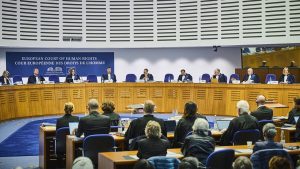By: Carlos Dominguez Scheid
Impunity Watch News Staff Writer
SAN JOSE, Costa Rica – The Inter-American Court of Human Rights (ICHR) issued a decision on November 27, 2023, with formal notification delivered on March 22, 2024, ruling that Ecuador is responsible for violating the freedom of expression of a whistleblower who reported corruption within the country’s Armed Forces.
 |
The Court’s judgment emphasizes the critical role of freedom of speech in ensuring transparency and accountability in government operations. It brings to light the significant challenges faced by individuals exposing misconduct, especially within military contexts, and establishes an important precedent for handling similar cases across the region.
The case involves Mr. Julio Rogelio Viteri Ungaretti, who reported suspected corruption within the Armed Forces in 2000, resulting in several sanctions against him. The Court reviewed the effects of corruption on democracy and human rights, emphasizing the necessity for states to create a supportive environment for whistleblowers and individuals engaged in anti-corruption activities.
The Court discussed the responsibility following the exercise of free speech concerning corruption allegations, noting that such cases are of public interest due to their impact on human rights. It affirmed the importance of society’s right to be informed about corruption, making such disclosures a protected form of speech under Article 13 of the American Convention on Human Rights.
The Court stressed that public officials have both the right and duty to report corruption based on reasonable belief and are expected to verify the accuracy of their information as much as possible, without having to confirm its authenticity at the time of reporting. The state is urged to provide adequate channels to facilitate reporting and ensure the protection of whistleblowers, including safeguarding their identity and personal integrity.
Finally, the Court assessed the repercussions of penalizing individuals for exercising their freedom of expression in reporting suspected corruption. It recognized that allegations of corruption involving public officials hold significant public interest and affect human rights, warranting special protection under Article 13 of the Convention. The Court stressed the importance of providing adequate channels for reporting corruption, underscoring the need to facilitate these disclosures and protect those who come forward.
For further information, please see:
Caso Viteri Ungaretti y Otros vs. Ecuador—2022
Corte Interamericana De Derechos Humanos Caso Viteri Ungaretti Y Otros Vs. Ecuador—27 Nov. 2023
Diplomat Flees To Market Town—26 Nov. 2022
IACHR refers case on Ecuador to the Inter-American Court—16 July 2021



